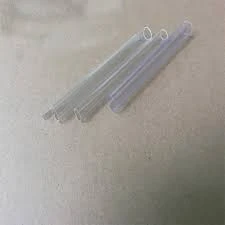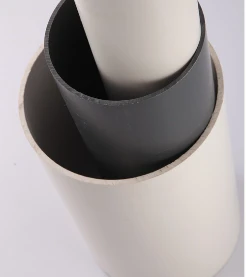Jun . 03, 2025 15:28 Back to list
Premium PVC Hard Plastic Sheet - Durable & Custom Sizes
- Introduction to PVC rigid sheet characteristics and industrial significance
- Technical specifications and performance data comparisons
- Manufacturer comparison tables with key metrics
- Custom fabrication options for specialized applications
- Real-world implementation case studies by sector
- Installation protocols and maintenance procedures
- Innovations in material science and future applications

(pvc hard plastic sheet)
Understanding PVC Hard Plastic Sheet Fundamentals
PVC rigid sheet represents a versatile engineering thermoplastic composed of polyvinyl chloride resin compounded with stabilizers and impact modifiers. These hard plastic sheets typically demonstrate Shore D hardness ratings between 75-85, creating durable surfaces resistant to impact deformation. Industrial applications prioritize this material due to its unique combination of chemical stability and structural integrity. Industries from construction to food processing utilize hard PVC sheet for equipment fabrication, protective barriers, and signage applications. The material's inherent flame retardancy (UL94 V-0 rated) and dielectric strength make it particularly valuable in electrical enclosures where plastic conductivity must be minimized.
Technical Properties and Performance Metrics
Performance data reveals why hard PVC sheet maintains dominance across sectors. Laboratory tests document 15,000 psi tensile strength - surpassing acrylic alternatives by 40% while maintaining comparable clarity grades. Environmental resistance remains exceptional, withstanding pH exposures from 1-13 without degradation and maintaining structural integrity between -20°C to 70°C. Standard sheet thickness ranges from 0.5mm to 75mm accommodate diverse structural requirements. UV-stabilized formulations extend outdoor service life beyond 15 years with less than 2% color shift. When evaluating hard PVC sheet versus polycarbonate, the 30% cost differential frequently determines material selection for non-impact-critical applications.
Comparative Analysis of Leading Manufacturers
| Property | Manufacturer A | Manufacturer B | Manufacturer C |
|---|---|---|---|
| Thickness Range | 1-50mm | 0.8-60mm | 2-75mm |
| Impact Strength (kJ/m²) | 85 | 92 | 78 |
| Continuous Service Temp | 65°C | 70°C | 60°C |
| Chemical Resistance Rating | Class 1 | Class 2 | Class 1 |
| Lead Time (Custom Orders) | 3-5 days | 7-10 days | 2-4 weeks |
Custom Fabrication Capabilities
Specialized applications increasingly require custom-engineered PVC rigid sheets. Manufacturers now offer over 30 additives for specific property enhancements, including:
- Antistatic formulations: Surface resistance reduced to 10⁶ Ω for electronics manufacturing
- High-clarity grades: 92% light transmission for inspection windows
- FDA-compliant compounds: For food processing equipment and pharmaceutical applications
Precision fabrication includes CNC routing with ±0.2mm tolerance, thermal forming for complex geometries, and specialized edge finishing. One automotive manufacturer reduced component costs by 27% switching to custom-extruded PVC hard plastic sheet profiles instead of machined aluminum. Post-processing services including digital printing and anti-graffiti coatings extend functionality.
Industry Implementation Case Studies
Chemical processing plants demonstrate PVC rigid sheet's exceptional performance. Containment vessels fabricated from 30mm thick hard PVC sheet withstood 98% sulfuric acid at 65°C for 15+ years with negligible erosion. In transportation infrastructure, extruded hard PVC sheet weather barriers installed on railway tunnels showed no degradation after 90,000 freeze-thaw cycles. Semiconductor facilities utilize custom-formulated static-dissipative PVC sheet for cleanroom wall systems, achieving surface resistivity between 10⁶-10⁹ Ω/sq as measured by EOS/ESD standards.
Aquatic applications reveal remarkable longevity metrics - marine bulkhead panels made with UV-stabilized formulations maintained 95% original impact strength after continuous sunlight exposure for 8 years. These documented performance characteristics continue to expand material adoption.
Installation Protocols and Maintenance Guidelines
Proper mechanical fastening remains critical for structural applications. Industry guidelines recommend:
- Pre-drilling holes 20% larger than fastener diameter to accommodate thermal expansion
- Maximum screw spacing intervals of 150mm for vertically mounted sheets
- Non-metallic fasteners to prevent galvanic corrosion in chemical environments
Surface maintenance requires solvent selection awareness. While PVC rigid sheet withstands isopropyl alcohol exposure indefinitely, ketone-based solvents induce stress cracking. Field data indicates proper cleaning protocols double service life in heavily soiled environments. Abrasion resistance reaches maximum effectiveness with maintained surface roughness values between Ra 0.4-0.8μm - requiring specific polishing techniques when restoring scratched surfaces.
Innovations in PVC Sheet Technology
Material scientists continue enhancing hard PVC sheet formulations. Nanocomposite technology recently increased impact strength by 120% compared to standard formulations while maintaining optical clarity. Recycling advancements now incorporate 70% post-industrial regrind without compromising mechanical properties - verified through extensive ASTM D638 testing. Emerging applications include laminated security barriers with UL 752 Level 8 ballistic ratings using alternating hard facing welding rod treated layers. Bio-based plasticizers derived from soybean oil now facilitate phthalate-free PVC rigid sheets meeting stringent EU REACH regulations. These innovations position PVC hard plastic sheet for expanded roles in renewable energy infrastructure and medical equipment manufacturing.

(pvc hard plastic sheet)
FAQS on pvc hard plastic sheet
Q: What is a PVC hard plastic sheet?
A: A PVC hard plastic sheet is a rigid thermoplastic material made from polyvinyl chloride. It offers excellent durability, chemical resistance, and weatherproof properties. These sheets are widely used for industrial fabrication, signage, and construction applications.
Q: What are the advantages of using hard PVC sheets?
A: Hard PVC sheets provide high impact strength, moisture resistance, and flame-retardant characteristics. They are lightweight yet robust, easy to machine, and cost-effective for protective barriers or tank linings. Unlike metals, they resist corrosion and won’t rust.
Q: Can hard facing welding rods repair PVC hard plastic sheets?
A: No, hard facing welding rods are designed to rebuild metal surfaces, not thermoplastics like PVC hard plastic sheets. For PVC repairs, use plastic adhesives or thermal welding tools. Mixing these materials can cause damage due to incompatible melting points.
Q: How do hard PVC sheets compare to other rigid plastics?
A: Hard PVC sheets offer superior chemical resistance versus acrylics and better moisture resistance compared to wood composites. They are less brittle than polystyrene and more cost-effective than polycarbonate for medium-strength applications like partitions or machine guards.
Q: Where are PVC hard plastic sheets commonly applied?
A: These sheets suit chemical processing equipment, food-grade surfaces, and architectural cladding due to their non-reactive nature. They also serve in marine environments for buoyancy aids and in industrial settings as weldable fabrication stock. Unlike hard facing welding rod uses, PVC sheets avoid metal corrosion issues.
-
HDPE Natural Sheet: Durable, Food-Grade & Versatile Plastic Solutions
NewsAug.27,2025
-
Durable Glossy PVC Rigid Sheet | Premium High-Shine Panels
NewsAug.26,2025
-
Durable PP Rigid Sheet: Lightweight, Chemical Resistant Solutions
NewsAug.21,2025
-
PVC Grey Sheet for Extraction: Chemical Resistant & Durable
NewsAug.19,2025
-
Durable PVC Pipe Fittings for Plumbing & Irrigation Needs
NewsAug.18,2025
-
HDPE Steel Belt Reinforced Spiral Corrugated Pipe | High Strength
NewsAug.17,2025

